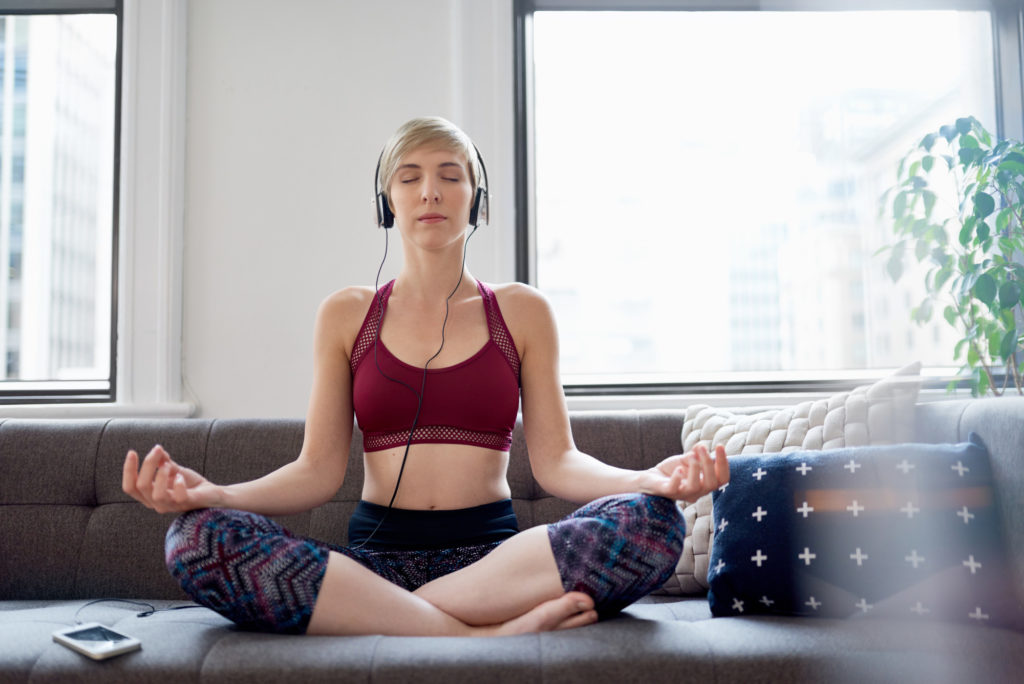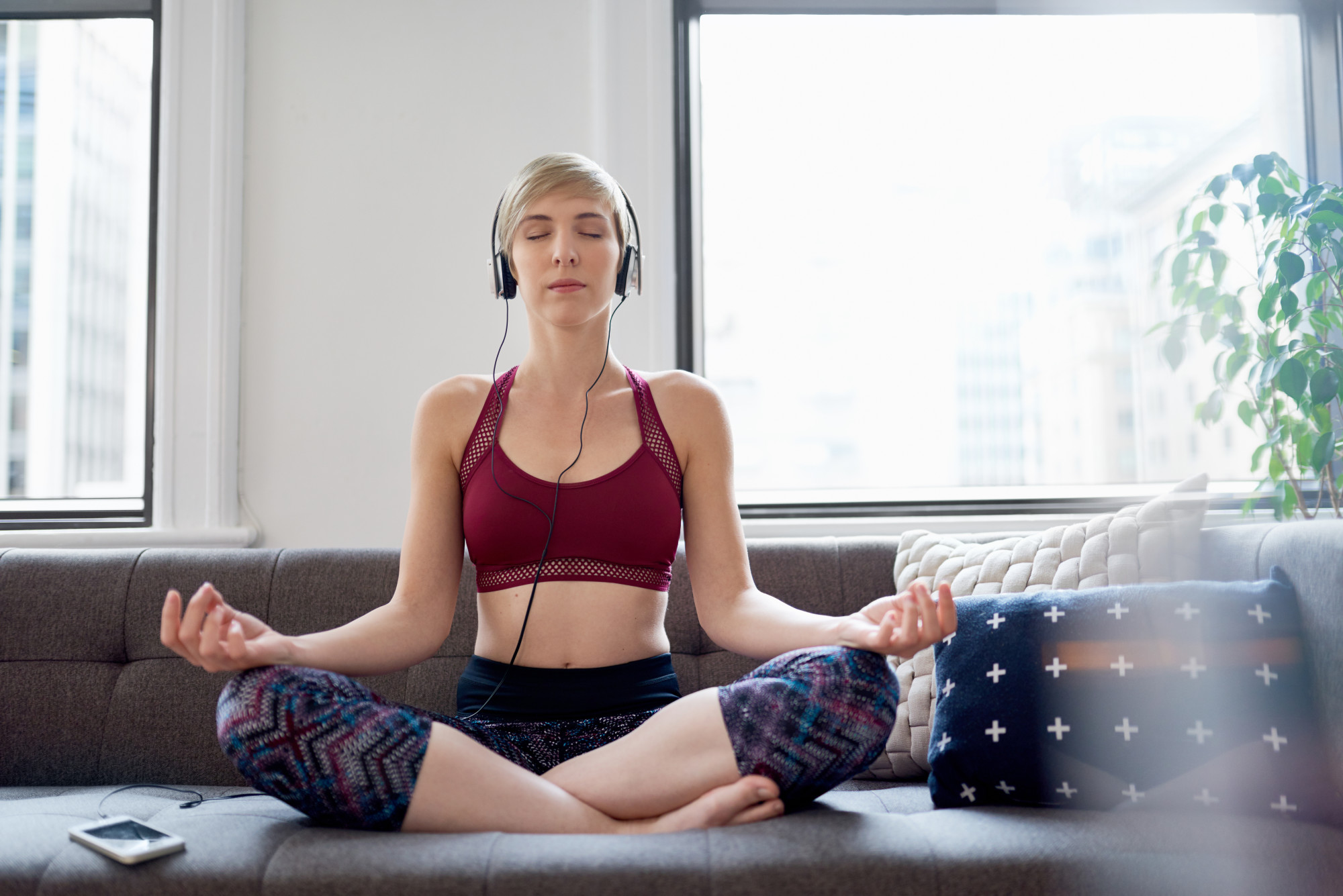
Anxiety manifests itself as mental unrest and a wide variety of physical issues.
It’s a natural part of our “fight or flight” reaction, which could save our lives in dangerous situations. However, most of us experience anxiety in non-threatening conditions.
As a result, our bodies are working overtime and our minds have a difficult time going through each day.
To offer potential relief, I’ve compiled a list of 7 things you can try to work towards being anxiety-free.
1. Modify Your Diet
Our gut has over 500 million neurons as well as neurotransmitters. What this means is that our gut health directly connects to our brain’s health.
The things we ingest can alter our wellbeing. In the case of anxiety, the following substances may have a negative effect and cause heightened feelings of discomfort:
- Alcohol
- Caffeine
- Drugs (illicit and prescription)
- Processed foods
- Sugars
Try to limit these things as much as possible.
Instead, opt for plenty of fruits, vegetables, and nutrient-filled foods like nuts, seeds, and eggs.
2. Plant Medicines May Help You Become Anxiety-Free
It’s becoming popular to look towards plants to relieve mental and physical problems.
Cannabis-Derived Products
Take CBD for example. Many people take CBD and other cannabis-derived compounds for anxiety and depression. You can get pure CBD, CBD with CBG (another compound that helps with anxiety), and various mixes to personalize your product.
Ingestion methods include oils, gummies, edibles, and even teas and coffees.
Herbal Teas
Drinking calming teas such as kava kava, chamomile, and valerian root at various times throughout your day may help you relax.
If you’re a coffee drinker, consider switching it up by drinking green tea instead. Green tea, including matcha, has tons of antioxidants and provides many health benefits while still giving you some caffeine.
Essential Oils
There’s research supporting the use of essential oils in relieving anxiety by affecting our bodies and energy. Examples include lavender, clary sage, rose, and ylang-ylang.
If you want to try them, you can use them in an oil diffuser, put drops on fabrics such as clothing or bedding, or mix them into skincare products using a carrier oil.
With all plant-based ingestibles, be sure to consult your doctor before trying them out. Some herbs and plants interact with certain medications and you don’t want that.
3. Dive Into Music
Research suggests that listening to music can change the way our brains work. This is why fast-paced music can help us be productive and down-tempo songs can make us feel sleepy.
Choose a curated playlist so you can listen without having to choose the songs whenever you feel anxious.
Listen to calming songs ambiently in the background, or, when you feel anxiety creeping in, sit back with a pair of headphones and listen to every sound you hear.
To change it up, listen to stand-up comedy or funny podcasts. Humor can provide relief to the heavy feelings of anxiety.
4. Relax Into the Present Moment
There’s a reason why everybody suggests things like meditation, breathing techniques, and yoga for anxiety. These things slow down our heartbeat, our nervous systems, and allow us to get some perspective of our lives.
You don’t have to have a rigorous practice or do these things for a long time.
Meditation
The goal of meditation isn’t to silence your mind. Rather, it’s to sit or lay still long enough to be able to recognize your thought patterns.
You can do this by listening to a guided imagery meditation or other videos online.
Breathing Techniques
Focusing on your breath can take your mind away from anxious thoughts. Plus, deep breathing slows down your heart rate.
Try breathing in as deeply and smoothly as you can while thinking about bringing in peace and relaxation. When you get to the end of your ability to breathe in, hold it there for a few seconds.
Then, slowly breathe out while imagining anxiety leaving your body.
Do this whenever you notice yourself feeling anxious as a healthy way to recognize and manage anxiety.
Yoga
Practicing yoga is a way to re-direct your thoughts towards your body and away from what you’re anxious about. Find a class nearby or lookup free videos online. You can do 5 minutes a day and slowly work up to more.
Pay attention to how different parts of your body feel such as your arms, feet, legs, and hips. Notice as many small details as you can.
5. Get Moving
Unfortunately, many jobs in our culture require that we stay seated throughout the day.
This lack of movement leads to muscle tension, stiffness, and a reduction in the beneficial hormones that exercise releases.
Try to take breaks every hour where you stand up, walk around, and move your body in different ways. For a smaller action step towards this, try setting a timer for every 30 minutes to assess your posture.
Our posture directly correlates with how we feel. For example, when we feel embarrassed, we curl our shoulders and head towards the ground.
By checking in regularly, you can change your body positioning into one that induces confidence and relaxation.
6. Remove Clutter From Your Space
When you experience anxiety in your car, home, or office, take a couple of minutes to clear the space.
Clutter is proven to affect our ability to focus, causes our senses to feel overloaded, and makes it difficult to relax.
To tackle this dilemma, move any trash in the area. Put things into drawers, on shelves, or away from sight in an organized manner. Get rid of items you don’t use often and that no longer serves a necessary purpose.
You can de-clutter your whole home like this every time you feel anxious. Work on a small area at a time and don’t make it a to-do list item (this might make you feel more anxious).
Rather, use it as an anxiety management technique.
7. Practice Gratitude
Anxiety brings in a slew of negative emotions. By holding onto these emotions, we can actually generate more of them.
Whenever you feel anxious, start thinking about the things that you’re grateful for. This can be people in your life, nature, or simply the privilege to be alive.
You can make it a routine by making a list every morning of things you feel lucky to have, see, or be around. Gratitude can actually ease anxiety and depression while bringing more positivity into your life.
If you want to take it a step further, consider getting involved in acts of service with a local charity. This may distract your mind while allowing you to see yourself doing good things.
You Deserve a Healthy, Happy Life
We know that becoming anxiety-free isn’t as simple as completing a 7 item checklist.
However, developing some of these things into a routine has shown to help many people. Try these things out, give them time, and seek professional help if things get worse.
Keep reading our blog for more ways to take action towards a healthier, happier life.
